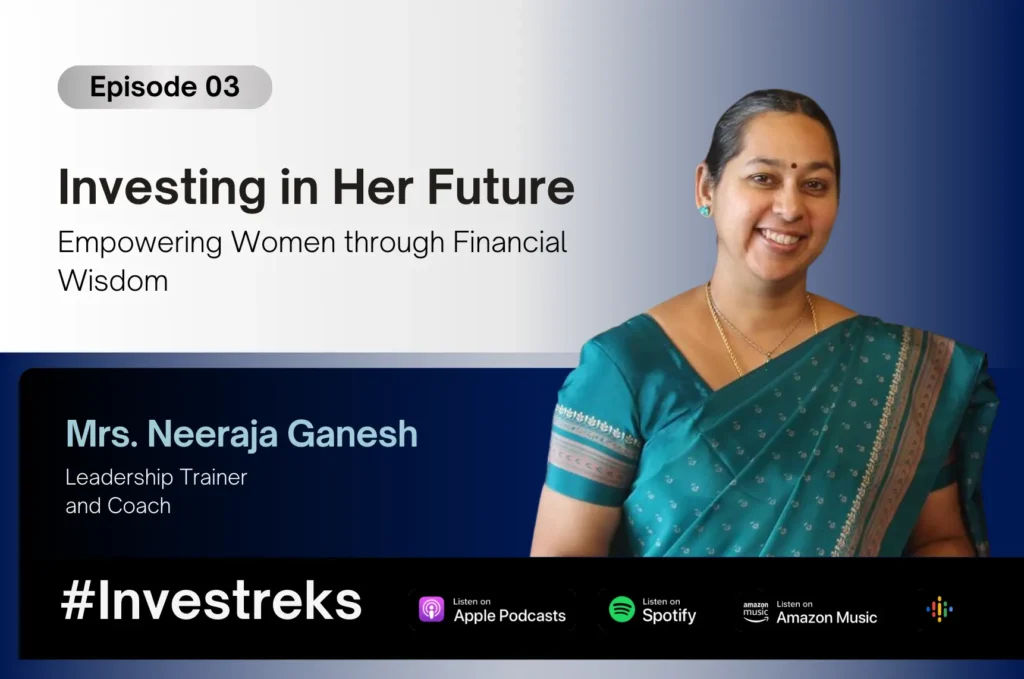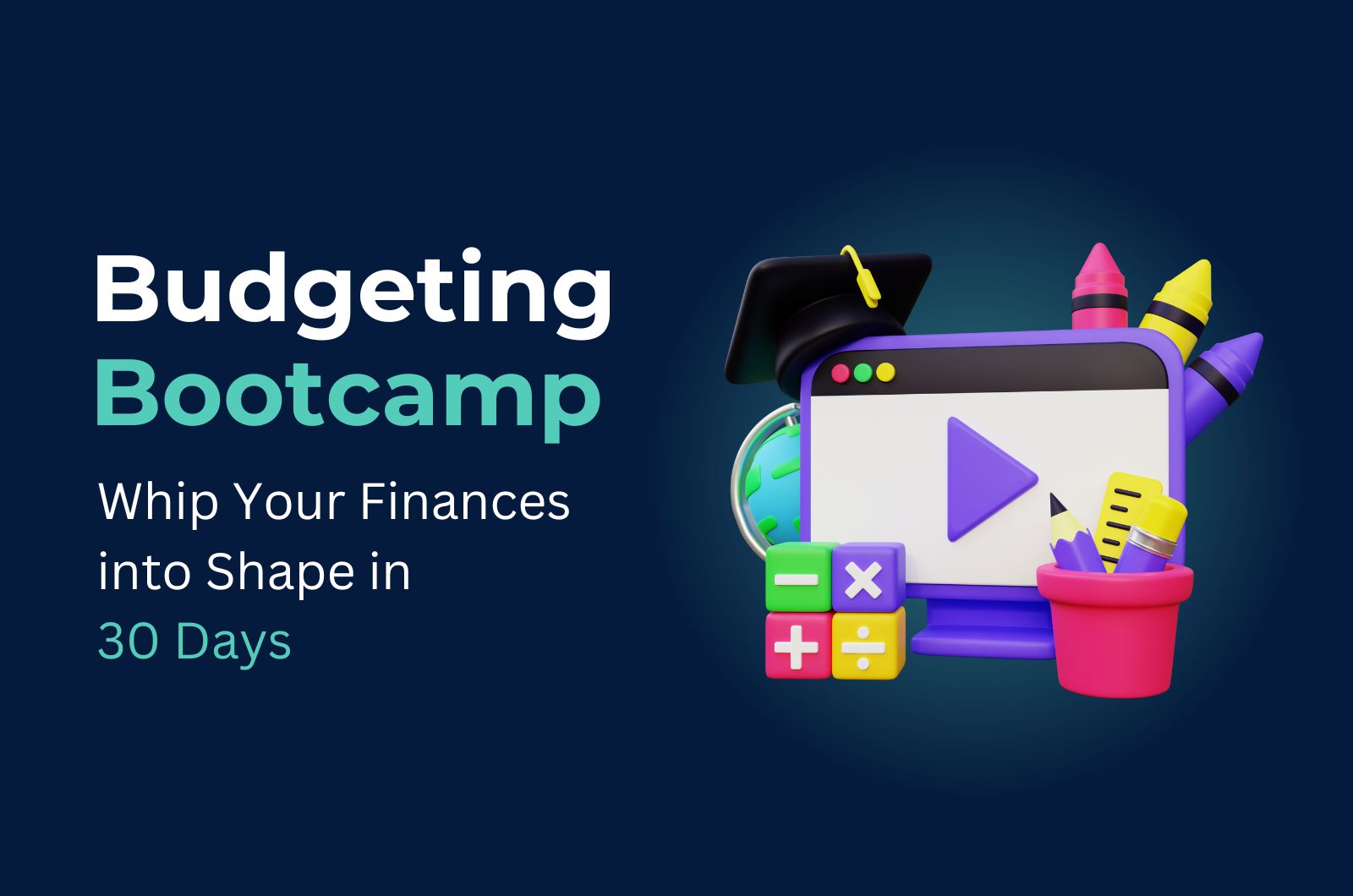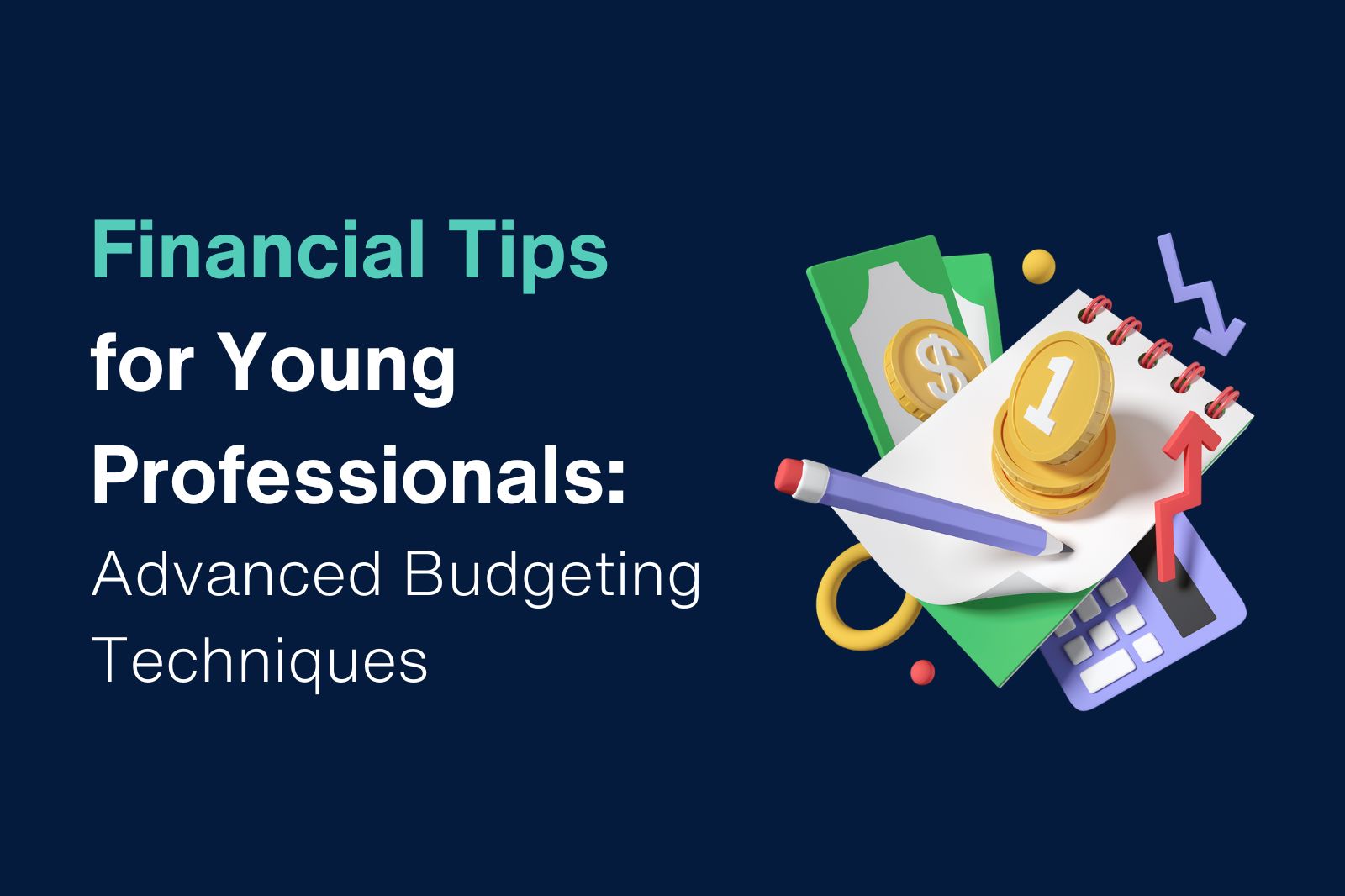Investing in Her Future | Investreks EP 03 | Ashton Gray Investments
Investing wisely is a crucial step toward securing your financial future and building wealth.

Mrs. Neeraja Ganesh
- On

Table of Contents
Tag
Share on

Speaker 1 [0:08]
Hey listeners. Good morning. Good afternoon or good evening, we’re thrilled to welcome you to invest tracks the ultimate podcast designed for inquisitive minds like yours ready to delve into a treasure trove of financial insights.

Speaker 2 [0:29]
It’s my privilege to introduce our distinguished guest, Ms. Neeraja Ganesh . She’s a renowned TEDx speaker, well known for addressing prestigious forums like IEEE PMI, and NASSCOM. She’s a prolific writer feature on chat shows and podcasts where she shares her unique leadership philosophy. While influence extends to reviewing and launching books by leading authors, she is allowed to make a significant impact with her upcoming book, you have a right no glass ceilings, no broken drums, no gloves, clips, inspiring young girls and women in their life and carriers. I asked her for her she needs education initiatives, passionately empowering women in the workforce for India’s economic growth. She’s a strong advocate of mentorship guiding many. She’s also headed the jobs for her foundation, which has set up to bridge the gender gaps in India.

Speaker 3 [1:32]
So welcome, Ms. Neeraja Ganesh, I’m absolutely delighted to have you here with us today.

Speaker 3 [1:37]
Thank you so much. It’s an honor and privilege to be on such a platform, especially in terms of talking about the topic that we’re going to talk about, which I’m sure we will get to know as we get into the question.

Speaker 1 [1:52]
Definitely. And so today, like you said, we’re going to talk about, you know, an interesting conversation. So it’s going to be about women and investments, or women and financial independence to be precise. And I can really not wait to start hearing your insights on the same.

Speaker 3 [2:09]
Yeah, that’s why I said, I’m really looking forward to when it is to do with women, anything to do with women, you know, it’s a it’s a cause that I’m very passionate about. And it’s a very important topic that we have on hand today. So let’s go ahead with that.

Speaker 1 [2:24]
Yes, ma’am. So before we get started, according to you, how important is it for women to stay financially independent in today’s modern world

Speaker 3 [2:34]
it is very important, most important, like many other things that are important for a woman, it is as important if not more as it is for a man to be financially independent. At the basic level, it gives women security and respect regardless of their socioeconomic status. You know, we sometimes think that, okay, I come from a privileged class or somebody’s not from a privileged class, whatever that means. But regardless of whatever their socioeconomic status is, being financially independent, definitely elevates the sense of security that a woman has, and it makes people look at her with a different amount of respect. And this, in turn, has an impact on their own mindsets, their family, society, and

Speaker 1 [3:25]
absolutely, mom and being a women, I think, I’m gonna like agree with you 100%. Because being independent, independent is important, and being financially independent is equally important. So yes, ma’am, that was spot on. And, you know, looking at the level of financial literacy among women, it basically varies from women to women significantly, depending upon factors such as you know, the education of the person, the socio economic background, and, you know, regional disparities, the list can basically go on. So when there are initiatives taken to promote financial literacy in women, not all women have access to all resources. So I would like to know from you about how an improved understanding of financial literacy empowers women to take control of their financial future.

Speaker 3 [4:08]
See, knowledge is power. We all agree to that. Right? So financial literacy contributes to that power. It determines one’s relationship with money, and it’s a lifelong relationship, okay. So hence, the earlier one starts trying to be literate about it, and then you know, handling money, the better off they are. And if you’d asked me how early I will say it should start in the childhood, it does not necessarily mean that the money it has to be, you need to have earned the money or someone should have gifted the money to you. And only then, you know, you kind of have to start looking at financial literacy. It is about the understanding of the value of money when you spend it on something and that’s why I said letters started as early as possible right from childhood. So as a child, when she accompanies the parents to say, a shopping mall, giving the child a perspective of what to buy, how to evaluate one brand against another, the decision making process behind buying it in that store or in some other store, whether they can buy it in that month or not. All of this gives a great start to the child in terms of understanding the components of finance. This will stay on in her mind for the rest of her life. And definitely help her once she starts earning spending and saving her own money. Yes

Speaker 1 [5:42]
ma’am. You’re absolutely right. So giving them a first hand experience about how money works by taking them to malls and wherever you go is a great example. And likewise, what specific steps can be paid to enhance your financial knowledge in areas such as you know, budgeting, saving and investing?

Speaker 3 [6:00]
Great question right? Now, budgeting is about being proactive. We are proactive with whatever we do in life. If we have to take a vacation, we proactively look at holidays destinations, we look at the weather, the deals that might be available during the offseason or the peak season. And then we take decisions, we just don’t kind of you know, say Okay, let’s go on a vacation today. Similarly, even we need to take decisions about utilizing the money in hand. Budget is most important, and it’s not very complicated. Okay. What do you earn in the month? What is the carry forward from the previous month? What is your expense? What do you think kind of, you know, will be your expense for this month? And what do you say, This is what constitutes your budget. Now, let me give a story or an example my daughter, she’s going to be 22. Now she just graduated this year, she started looking at budgets, expenses and saving when she went to stay at a paying guest accommodation during her final year at college. So she was not yet earning, we were giving her a fortnightly amount, say this is for her living expenses, okay. And she would divide it into two components. She called it essentials and luxury. Okay, so she had a budget for her monthly essentials, which was a multiplier of what she felt she needed to spend on her daily food and drinks because everything else was taken care of right. And that was one of the line items essential. And what she would want to spend with friends over a weekend could be movies, fancy restaurants, gifts, etc, that is the luxury item. So she used a simple Excel sheet, some formula in that. So your input on your daily expenditure, you kind of put it under the account of essentials luxury, so I spent 50 rupees on a samosa it could be essential, I spend 200 rupees on the movie ticket, it is luxury, right in an Excel sheet, you just do that. And there is a particular cell in that Excel which is going to tell you this is your monthly, you have already done a budget. And that’s your monthly cap on your essential and luxury. Now, because of the formula, supposing on a particular day, she went overboard on her essential spend all the luxury items itself in five days has gone overboard, whatever was the maximum cap on luxury, it would become a red. Otherwise, the rules remain the green, you know, so it was a very simple but formula driven Excel sheet. And this definitely allows you to reflect on how much am I spending my spending within the budget or not? And if it is looking red, then why is it is my budget incorrect? I assumed that you know I wouldn’t need more than 100 rupees in a day for my food and drinks. But actually 200 So should I redo relook at my budget. In that case, you know, should I ask my parents for more money? Where is that additional money coming from? Right? So that’s how she started it. And she started working also, you know, when she was at college itself, so the minute she started earning her own money, she also decided how much she wanted to save. So it wasn’t that all money that she heard you wanted to kind of spend she was very very clear that she wanted to save a cockpit didn’t have that now why? Why does the child who is studying in college need to save because you know that there are things that you want to do which you may want to do on your own. You don’t want to ask your parents or your friends may not be okay with that. I mean it’s probably a very big ticket item and then we know we are not going to kind of finance that could be whichever way right so she and put that element also into this formula, debit Excel, to say that this is my essential, this is my luxury. And this is what I want to say. Now, where do you say where do you invest? This the second thing, right? When you talk about financial literacy budgeting comes, you are your understanding of how much of expenditure. And then finally, it comes through your saving and investment options. Now, for her, it was easy to understand this because my husband, her father, himself is a financial portfolio advisor to many people. So, and in obviously, in many, many cases, you know, you usually go to your father, you usually go to your husband to take advice in terms of how do I invest in where do I invest. So that’s how she learned a little bit about the investment. But it was a great way for her to learn. So early on, it is a great way for her to understand that she needs to put a cap on her craving. See, there is never, never, you know, you may budget that you know, you should only spend 1000 rupees, 2000 rupees on your luxury items. But the minute you look at that beautiful dress, you want to buy it, yeah. Which means there has to be some amount of restriction that you put on yourself. Even if you had that additional money. I’ll say that no, this is my overall budget, I’ll put it off, I will buy it next month. Okay. And the other learning that she got from this was that you have to actually plan for that big, big ticket luxury. Okay, so you want to take a longer trip with your friends, and you want to do it in the month of December, then every month, put a little bit away from your earning, or pocket money or whatever that is. So that when December comes, you have already got that kitty, which you can use for your vacation, the longer trip with your friends. So all these elements come in. And that’s why I said it’s very, very useful to start it as early as you can. One is to build the mindset. And then to really, you know, whenever you’re giving the pocket money to the children, and then when they start earning, because when you start earning you also know I also we are thrilled with the monies, which are that becomes our way to kind of do whatever we could not get to do in the past. So and now you may ask, what is she going to do with all this investments and savings that she is making, because she was a student we were taking care of now she started earning, she may go into a postgraduate course, which can show again, as parents, we might, you know, kind of fund that. But she has certain goals for herself. She says she wants to do two postgraduate courses. And she’s very clear that one of them. Yeah, she will take help from us in terms of funding aid, but other times she doesn’t want to take on. So she says I will fund that course myself. So this investment that she is making is towards that. Okay, so teaching all these concepts early on, and from home itself, you really don’t have to go all out to a school. Each of us at home has a certain degree of financial literacy, because we all have come a long way. And we’re doing these things for our students, teaching our children, that is really a great way to start building it and where to invest? That’s also a very important question. Now in this case, my husband was able to tell her about the different kinds of investment options and tell her the merits and not Nestle demerits. But when and why would you try to put it in a fixed deposit as against a mutual fund the different kinds of mutual funds, you have your debt and equity, you have liquid funds. There are some government schemes, you have the PPF schemes. Insurance is a big one, right? People need to understand why insurance and you know when to buy the insurance, what kinds of insurance to go for. Now, all of this is work in progress. She is learning it right now. It’s a father who’s handling it. But I’m sure she is a smart kid. And soon she will learn the whole gamut of things, and she will start making those decisions for herself. So hopefully this answered the question. Yes

Speaker 1 [14:39]
ma’am. I’m sure that will definitely help. And also when you were talking about, you know, the actual format and, you know, the kinds of labels she had to put her funds in segregate them into expenses and savings and investments. I think that was you know, pretty much how everybody stopped. So that’s like, you know, the beginner step of how people go about, you know, buy budgeting, saving and invest, I mean investing. So as they progress in life, that’s when we go to the bigger picture. And like you said, your husband is a financial advisor. So there are people that I know who go to financial advisors, and then you know, hand over the portfolio to them, asking them to do everything for them. So again, like it depends from person to person, but then that is a great spot for a young person to start from.






